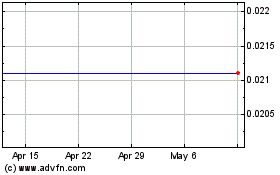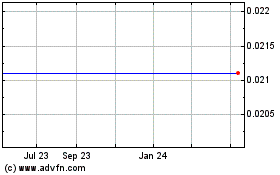WiFi Playing More Crucial Role In Wireless Carrier Growth
October 22 2010 - 4:12PM
Dow Jones News
WiFi, once brushed off as unreliable by the major wireless
carriers, now finds itself playing a crucial role in their growth
businesses.
On Friday, AT&T Inc. (T) said that since purchasing WiFi
operator WavePort in 2008, the telecommunications giant has signed
$200 million worth of contracts to provide local wireless access to
retailers such as McDonald's Corp. (MCD). Verizon Wireless and
Sprint Nextel Corp. (S) have aggressively pushed small devices that
can broadcast portable WiFi hotspots.
It marks a reversal of an attitude once held by the major
carriers, which scoffed at the open design and previously opted to
deliver their services through their own tightly controlled
networks. But by embracing WiFi, they are able ease the congestion
on their networks by diverting traffic to this alternative route.
WiFi access also gives the carriers new revenue streams, and draws
in consumers who are increasingly searching for local wireless
hotspots.
"It's a complete shift in attitude," said Dominic Orr, chief
executive of Aruba Networks Inc. (ARUN), which supplies WiFi
equipment to carriers and businesses, adding that he has seen more
of a push to move traffic onto the WiFi infrastructure.
While T-Mobile USA has long embraced WiFi, including offering
phones that can handle voice calls run over both the cellular and
WiFi networks, AT&T and Verizon have caught up.
Both use WiFi as a retention tool. AT&T offers free access
to a network of 23,000 WiFi hotspots in retail stores, airports and
hotels to certain wireless and U-Verse subscribers, crucial for
iPhone users looking for a speedier wireless connection. Likewise,
Verizon offers WiFi to customers who sign up for a higher tier of
Internet service.
Free WiFi access, meanwhile, also means a decent profit for
AT&T.
"It's meeting our expectations of what it should do," said
Dennis Whiteside, assistant vice president for AT&T's WiFi
business. He declined to give specific financial figures for the
WiFi business.
AT&T's slow-growing business services arm gets a boost,
albeit a small one, from its WiFi business. Earlier this month, it
signed a deal to provide free local wireless access to more than
1,600 Fedex Corp. (FDX) locations. The deal follows similar
arrangements with other retailers such as Starbucks Corp. (SBUX)
and Barnes & Noble Inc. (BKS).
WiFi adoption by consumers has never been higher. AT&T said
Friday that it created 106.9 million connections on its U.S. WiFi
network in the third quarter, exceeding the 85.5 million
connections made for all of last year.
As a result, more restaurants and stores are looking to offer
WiFi, giving AT&T another service to take to businesses. The
company can supply the Internet connection, as well as public and
private corporate access, while managing the service for the
retailer. AT&T charges a flat monthly rate, which varies
depending on the amount of services that are delivered.
That business is highly fragmented, with companies such as
privately held Boingo Wireless Inc. offering hotspots at shops,
LodgeNet Interactive Corp. (LNET) serving hotels, and International
Business Machines Corp. (IBM) providing advice and direction on
building larger scale WiFi networks.
Verizon Wireless and Sprint, meanwhile, were late in mandating
that all of their smartphones have the option for WiFi. They have
gotten more aggressive since then, with both offering MiFi devices
that can use their wide-reaching cellular networks to create a
small, but portable, WiFi hotspot. Sprint's Overdrive device can
tap into the fourth-generation network for a speedier connection.
They are able to charge between $20 and $60 a month for the device,
depending on data use.
Verizon Chief Financial Officer John Killian told analysts on
Friday he expects the WiFi-only version of the Apple Inc. (AAPL)
iPad--sold by Verizon Wireless--will drive sales of MiFi
devices.
Consumers are interested in WiFi because the networks typically
offer a faster connection than the carrier's cellular networks.
Other applications, such as Apple's Facetime video chat program,
will work only on WiFi.
Getting free access to the Internet on smartphones has also
become more important after AT&T introduced capped data plans,
which have customers counting the megabytes of information sent to
their smartphones through the cellular network. Verizon Wireless,
which is jointly owned by Verizon Communications Inc. (VZ) and
Vodafone Group PLC (VOD), said it plans to offer next week a
cheaper, but limited data plan.
"It's grown from an interesting little technology to a real
working everyday tool that is in people's hands," Whiteside
said.
-By Roger Cheng, Dow Jones Newswires; 212-416-2153;
roger.cheng@dowjones.com
Lodgenet Interactive Corp. (MM) (NASDAQ:LNET)
Historical Stock Chart
From Mar 2024 to Apr 2024

Lodgenet Interactive Corp. (MM) (NASDAQ:LNET)
Historical Stock Chart
From Apr 2023 to Apr 2024
